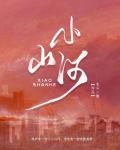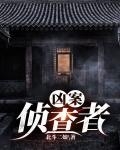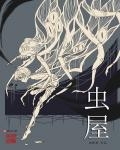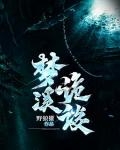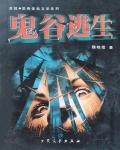chapter Five 1
The straight-line distance between Wangfen Town and Qingzhou City is only about thirty or forty kilometers, but because the road is all rugged and narrow, winding up and down the mountains, it takes a whole day to get in on horseback.
Zhu Guangwen and Pu Jianyilang were both dressed like business owners, wearing silk jackets with a front opening, black hats, and weapons hidden on their waists. They were riding horses, followed by two servants.
It was almost evening when the four men arrived at Wangfen Town at the foot of Sanyang Mountain, so they stayed in the only horse inn in the town, preparing to check out the Heng King's Tomb the next morning.
"Lotus Mountain on the head, Crescent River under the feet" is what this means for the Hengwang Mausoleum. The Hengwang Mausoleum is protected by mountains behind it and surrounded by green mountains opposite it. In front of the mausoleum, a stream meanders. The river water comes from the west, turns a half-moon bend around the mausoleum, and then flows eastward. This half-moon-shaped river bend is rare in the area of dozens of miles.
In the third year of Shunzhi, the last Heng Prince Zhu You was captured and then killed for treason. The Heng Prince's mansion was confiscated and the palace buildings were razed to the ground. However, the Heng Prince's Mausoleum was preserved because it was hidden in the mountains. This may be the reason why Heng Prince chose to have his tomb far away from the ancient city.
There is a small mountain village not far from the Hengwang Mausoleum, which is called Wangfen Village. Most of the villagers in the village are surnamed Zhu, and they are said to be descendants of the guardians of the mausoleum. It is precisely because of these guardians that the Hengwang Mausoleum is still well preserved after nearly three hundred years of wind and rain.
When Pu Jianyilang saw the two towering palaces and a circle of tall and solid walls in front of the Hengwang Mausoleum from afar, he opened his eyes wide and was immediately shocked by the magnificent momentum of the entire mausoleum. He never dreamed that such a magnificent mausoleum was hidden in this remote mountain.
In Pu Jianyilang's eyes, this is not only a royal tomb, but also a mountain of gold. The scale and grandeur of the Heng King's Mausoleum are in no way inferior to any imperial tomb he knows.
The mausoleum, which covers an area of hundreds of acres, has three layers of walls. The outer layer is the tallest and strongest, made of thick bricks, about five meters high and three meters thick. The two layers inside are stone walls, less than one meter thick and less than three meters high. This layer of wall is said to have used the ancient yellow rice grouting technology, that is, rice soup and lime are mixed and poured into the gaps between the stacked stones. After drying, it is extremely strong and reliable.
Three tall and majestic archways extend from the front of the royal tomb to outside the wall. A bluestone paved corridor is more than 300 meters long. Dozens of stone-carved spirit guardians and spirit guardian animals are majestically and neatly arranged on both sides of the corridor. On both sides are forests of steles. In the Ming Dynasty, every major event such as sacrifices, repairs, enthronement, and commendations were recorded on steles.
On both sides of the central corridor are several palaces. The largest of them are the two large halls in front of the royal tomb, known as the East and West Palaces. Their magnificent glazed tiles and vermilion walls are no different from those of the imperial tomb.
At the end of the corridor is a base built with huge stones, on top of which is the Hengwang Mausoleum that looks like a small hill. On top of the tall mausoleum are towering ancient trees, whose lush branches and leaves block out the sun.
Pu Jianyilang, who is well-versed in Chinese history, can tell the identity of the tomb's owner when he sees this hill-like tomb, because ancient China had strict regulations on the shape of tombs, which must not be exceeded.
According to the Book of Rites, Tan Gong Shang, Confucius had seen four types of tomb mounds. There were the "Ruotang" which was square and raised like the foundation of a hall; there were the "Ruofang" which was like a dam, wide and low, with a slightly higher center; and there were the "Marongfeng" which was like an axe blade.
The appearance of tomb mounds dates back to the middle of the Spring and Autumn Period. Confucius once said: In ancient times, there were tombs but no graves. After the appearance of tomb mounds, trees were planted on the graves as marks, which was collectively called "sealing trees". The size of the graves and the number of trees became symbols of the deceased's identity.
The nobles’ rank determined the height of their mounds and the number of trees they planted, while commoners without rank “did not bury their graves to prevent rain, nor did they plant trees.” During the Warring States Period, the practice of planting trees at the mounds had evolved to “as tall as a mountain, with trees as numerous as a forest.” After the Qin and Han dynasties, almost every tomb was either mounded or planted with trees.
The Han Dynasty law stipulated that the tombs of marquises were to be four feet high, and there were differences for common people from the Marquis of Guannei to the common people. After the Tang Dynasty, each dynasty had strict regulations on the tombs of officials and common people: the first-rank officials were to be eighteen feet high, and the tombs of common people were six feet high in the Tang Dynasty and four feet high in the Qing Dynasty. This is also the origin of the saying "four-foot tomb mound".
The higher the official rank, the bigger the tomb. The tombs of emperors of all dynasties are as tall as mountains, so they are called "mausoleums", reflecting the supremacy of imperial power.
After Pu Jianyilang and Zhu Guangwen entered the mausoleum, they handed their horses to two followers and then walked along the corridor. They met two old men carrying big brooms on their shoulders. It seems that these two old men are the ones who take care of the royal mausoleum. No wonder the corridor under their feet is so clean. For hundreds of years, the descendants who guard the royal mausoleum are still fulfilling their predecessors' duties wholeheartedly.
Both old men are over 60 years old. Although they have shaved heads, you can still see the white roots of their hair, and it can be seen that they are both in very strong health.
The appearance of Pu Jianyilang and Zhu Guangwen surprised the two men carrying brooms, and they showed surprise on their faces. In these chaotic years, few people came here to visit or worship King Heng.
Zhu Guangwen waved to one of the old men and said loudly: "Come here, old man, come here to ask you something..."
Seeing Zhu Guangwen's attire and his arrogant expression, the old men obviously guessed what kind of person he was. The two old men walked over slowly, and one of them asked slowly, "My two guests, what can I do for you?"
Zhu Guangwen took out a few silver dollars from his pocket, held them in his hand and said, "I have a question for you. If you answer it well, I will reward you..."
"Haha..." One of the old men sneered a few times, "Aren't you afraid of shortening your life by asking us to call you uncle?"
"You..." Zhu Guangwen was choked and speechless.
Pu Jianyilang glared at Zhu Guangwen, thinking that this idiot couldn't even ask a question, but he didn't dare to speak himself, for fear that people would recognize he was Japanese as soon as he opened his mouth.
Seeing Pu Jianyilang's dissatisfied expression, Zhu Guangwen dared not vent his anger, so he changed his face and said with a smile: "Don't be angry, old man. Excuse me, is this the tomb of King Heng?"
Both old men shook their heads with a mysterious expression.
"What? Isn't this the tomb of King Heng?" Zhu Guangwen said in surprise.
"We have never heard of the Heng King's Tomb." One of the old men said coldly.
Zhu Guangwen pointed to the tall mausoleum not far away and asked, "If it's not the tomb of King Heng, then what is it? Could it be your family's ancestral tomb?"
The old man who was speaking ignored Zhu Guangwen's angry expression. He shook his head and said softly, "Hey, many people think this is the Heng King's Tomb. Even if I tell you, you won't believe what is buried underneath..."
Pu Jianyilang finally couldn't hold it in any longer and asked hurriedly, "Old man, tell me what you have buried down there."
After hearing Pu Jianyilang's words, the two old men looked at each other. They both obviously recognized that the man dressed as a boss was a Japanese devil. At this time, both old men realized that these four people had come with bad intentions.
One of the old men looked at Pu Jianyilang and said, "The title of King Heng is hereditary. It has been passed down for six generations and seven kings in Qingzhou. According to the system of the Ming Dynasty, the emperor's sons must be made kings, and the king's sons must be made princes. There are 29 princes in the descendants of King Heng. Together with the subsequent kings of Heng and those princesses, there are at least dozens of people. How could there be only a lonely mausoleum here? How could King Heng bury himself alone in this remote mountain? This is just a fake royal mausoleum to cover up the truth..."
"You're talking nonsense!" Before the old man could finish, Zhu Guangwen interrupted him with a shout, "You... you're trying to cover up your mistake..."
The old man didn't seem angry, and said with a smile: "Haha... since you don't believe it, why are asking us?"
After saying that, the two old men carried their brooms and were about to leave.
Pu Jianyilang hurriedly raised his hand to block the two old men's way: "Please wait a moment, you haven't told me what is buried under that mound of earth..."
The old man who had just spoken stopped and looked at Pu Jianyilang calmly and said, "Well, since you don't look like a bad guy, I'll tell you that there is a sea eye under this huge mound of earth."
"Sea eye! What is a sea eye?" Pu Jianyilang asked in confusion.
"It is a spring connected to the sea, and it is connected to the East China Sea below. The sea eye is turbulent. If it is opened accidentally, the water will immediately gush out and flood this place..."
Zhu Guangwen immediately pointed at the old man and cursed, "Nonsense! These words may be enough to fool a three-year-old child, but you want to fool me? Get out of here right now!"
Seeing that Zhu Guangwen was about to bite people like a mad dog, the two old men quickly picked up their brooms and left in a hurry.
After the two old men who were sweeping the floor walked away, Zhu Guangwen turned around and said to Pu Jianyilang, "Your Excellency, please don't listen to these two old bastards. They must be afraid that someone will come to dig up the Hengwang Tomb, so they deliberately made up lies to scare people."
Pu Jianyilang gently shook his index finger and said, "No... no, what they said before also makes sense. The imperial tombs are usually concentrated together, and there are very few isolated ones. There must be something wrong here."
"Then what should we do?" Zhu Guangwen seemed a little discouraged.
"Let's take a look first. I want to study this place carefully."
"Okay, please come this way, Colonel."
Zhu Guangwen said as he walked with Pu Jianyilang towards the big tomb...
That night, Pu Jianyilang and his party rushed back to Qingzhou City. On the way back, Pu Jianyilang had already thought of a strategy.
It was already dark when they returned to Qingzhou City, but Pu Jianyilang did not return to Ouyuan, but took Zhu Guangwen to his headquarters. Pu Jianyilang did not bother to eat or change clothes, but went directly to the war room, and then lay on the map to carefully observe the terrain around the tomb of King Heng.
Pu Jianyilang said nothing along the way, and Zhu Guangwen didn't dare to ask more. He didn't know what Pu Jianyilang was thinking. Now seeing Pu Jianyilang lying on the map and looking at it non-stop, Zhu Guangwen guessed what Pu Jianyilang was thinking.
"Colonel, should we take a military action?" Zhu Guangwen asked cautiously.
"Well, not bad..." Pu Jianyilang said without raising his head. After watching for a while, he waved to Zhu Guangwen, "Mr. Zhu, how many troops do you think are needed to control the area around the Hengwang Mausoleum?"
"With two squadrons, I can block the area within five miles of the Hengwang Mausoleum."
"Very good, there are Eighth Route Army soldiers hiding here in Hengwang Mausoleum. We need to take a military action here. Do you understand?" Pu Jianyilang said with a double meaning.
"I understand. Of course I understand. Colonel, please rest assured. I will lead the troops to surround this area. The Imperial Army can operate in this area without any worries..."
"Wow... you're so smart... haha... no matter what's buried in the Heng King's Tomb, I'm going to open it and take a look..."
"Colonel, when do we start the action?" Zhu Guangwen asked excitedly. He was thinking that if he could really dig out treasures from the tomb of King Heng, Pu Jianyilang would definitely reward him handsomely.
Pu Jianyilang pondered for a moment, then said: "Get ready and start the action in two days."
"Yes, I'll be ready when I get back."
"Zhu Sang, this operation must be carried out with great fanfare. Do you understand?"
Zhu Guangwen nodded repeatedly: "Understood, understood, we must let the people know that we are conducting a major military operation."
"Haha... Mr. Zhu, you're very smart..." Pu Jianyilang said as he gave Zhu Guangwen a thumbs up. Then he changed the subject and whispered, "You have to do one more thing in the next two days. The two old men I met this morning were right. Qingzhou City has had so many hereditary princes. Where are their tombs? This question must be clarified..."
Damn, the old devil has such a big appetite! Zhu Guangwen cursed secretly in his heart, but he promised repeatedly: "No problem, please rest assured, Your Excellency the Colonel, I will definitely figure this out."
Zhu Guangwen thought about it and realized that it was easier said than done. It was not easy to figure out the truth. Those princes had been dead for two or three hundred years. Where could he find their graves? He had dug a hole for himself.
Two days later, a small Japanese army squadron and two puppet army squadrons came out of Qingzhou City with great fanfare. Because they were going into the mountains, the entire team walked.
A Japanese squad normally consisted of three infantry squads and one grenade launcher squad, totaling 54 people. An infantry squad consisted of 13 people, including the squad leader, four machine gunners and eight riflemen. The puppet army squadron had the same organization as the Japanese army, with a total of about 180 people, equivalent to a reinforced company.
A team of more than 400 people drove towards Wangfen Town, and the purpose of their trip was to rob tombs... This is true history. Today, if we have time to visit the Hengwang Mausoleum, we can still see the traces left by the Japanese devils when they blew up the tomb.
According to the pre-planned plan, Zhu Guangwen led his troops to blockade the area around the Hengwang Mausoleum and occupied the two hills in front and behind. Pu Jianyilang personally led the Japanese soldiers into the mausoleum. Among this team of devils, there was a special engineering squad that carried explosives and special excavation tools.
As soon as the Japanese soldiers came, the villagers of Wangfen Village knew about it. Seeing that the puppet army surrounded the Hengwang Mausoleum in three layers, saying that they wanted to catch the Eighth Route Army, everyone knew that they were going to rob the Hengwang Mausoleum. But the villagers were anxious and helpless. In order to prevent the villagers of Wangfen Village from informing the Eighth Route Army, Zhu Guangwen sent soldiers to block the entire village and no one was allowed to enter or leave.

